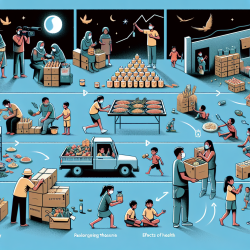The study emphasizes the importance of integrating human rights law with an intersectional approach to ensure equitable vaccine allocation. This method recognizes the overlapping vulnerabilities of various population groups and seeks to address the disproportionate impact of COVID-19 on those with pre-existing social and medical vulnerabilities.
Practitioners can apply these principles in their work by:
- Understanding Intersectionality: Recognize that individuals may face multiple, intersecting forms of discrimination and vulnerability. This understanding can help practitioners provide more nuanced and effective support to their clients.
- Advocating for Vulnerable Groups: Use your position to advocate for the needs of vulnerable populations, ensuring they receive the necessary resources and support during the pandemic.
- Implementing Human Rights Principles: Ensure that your practice aligns with human rights principles by promoting non-discrimination, transparency, and accountability in all aspects of your work.
- Encouraging Further Research: Stay updated with ongoing research and encourage others in your field to explore how intersectional human rights approaches can improve service delivery and outcomes for clients.
By embracing these approaches, practitioners can play a pivotal role in promoting equity and justice in healthcare, particularly in the context of COVID-19 vaccine distribution.
To read the original research paper, please follow this link: An intersectional human rights approach to prioritising access to COVID-19 vaccines.










